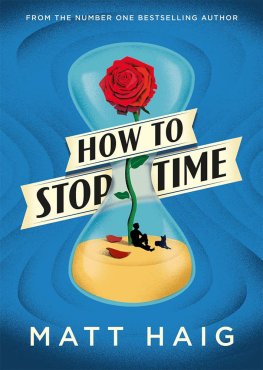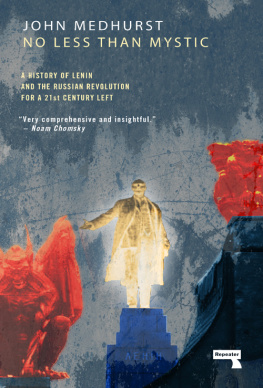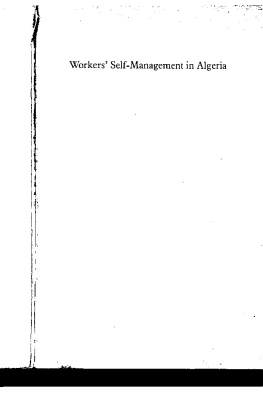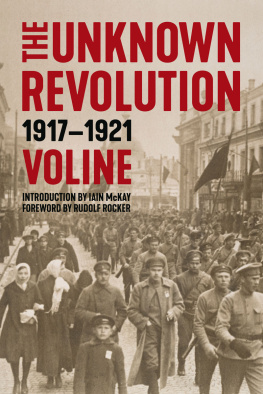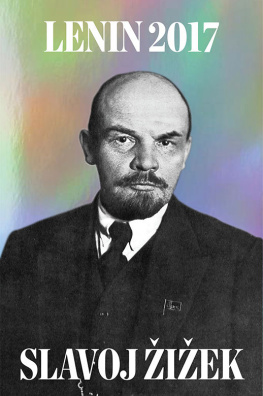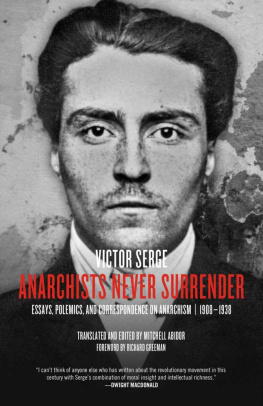Mett - Kronstadt
Here you can read online Mett - Kronstadt full text of the book (entire story) in english for free. Download pdf and epub, get meaning, cover and reviews about this ebook. year: 2017, publisher: Theory And Practice, genre: Politics. Description of the work, (preface) as well as reviews are available. Best literature library LitArk.com created for fans of good reading and offers a wide selection of genres:
Romance novel
Science fiction
Adventure
Detective
Science
History
Home and family
Prose
Art
Politics
Computer
Non-fiction
Religion
Business
Children
Humor
Choose a favorite category and find really read worthwhile books. Enjoy immersion in the world of imagination, feel the emotions of the characters or learn something new for yourself, make an fascinating discovery.

Kronstadt: summary, description and annotation
We offer to read an annotation, description, summary or preface (depends on what the author of the book "Kronstadt" wrote himself). If you haven't found the necessary information about the book — write in the comments, we will try to find it.
Kronstadt — read online for free the complete book (whole text) full work
Below is the text of the book, divided by pages. System saving the place of the last page read, allows you to conveniently read the book "Kronstadt" online for free, without having to search again every time where you left off. Put a bookmark, and you can go to the page where you finished reading at any time.
Font size:
Interval:
Bookmark:
Ida Mett was born as Ida Markovna Gilman on July 20th, 1901 in Smorgon in the Russian Empire (now Smarhon, Belarus). Predominantly Jewish, the small industrial town was a hotbed of radicalism. Ida became an anarchist while studying medicine in Moscow. She was soon arrested for anti-Soviet activities and was expelled from the country with first husband David Tennenbaum in 1924.
In 1925, Ida was in Paris. Here she became involved with the Group of Russian Anarchists Abroad, which included the great fighter Nestor Makhno, his sometime collaborator Peter Arshinov, and fellow anarcho-syndicalist Nicolas Lazarvitch, who she later married. As well as editing the journal, Dielo Truda (Workers Cause), Mett was one of the co-authors of the Groups controversial but influential Organisational Platform of the General Union of Anarchists (Draft) the Platform.
1931 found her celebrating May Day with anarchist heroes Buenaventura Durruti and Francisco Ascaso in Barcelona. Present at this meeting were also the veteran Russian anarchist Voline, Agustin Souchy (author of With the Peasants of Aragon , available from this publisher) and Camilo Berneri ( murdered by the Communists during the Barcelona May Events of 1937) .
Back in Paris, Ida served as secretary of the local gas workers union, all the time writing and agitating, being arrested many times. It was in this period that the booklet you are reading now was written.
After the Fall of France in 1940, Mett was briefly interned by the Vichy regime in Rieucros camp, before the renegade Communist Boris Souvarine successfully arranged her release. The couple, with their ten year old son Marc, spent the rest of the war in La Garde-Freinet, a quiet mountain village near the Cte dAzur.
Returning to Paris, post-war Ida worked as a nurse in a sanatorium for Jewish children in Brunoy, and later as a translator. She was never able to practice as a doctor because her qualifications were not recognised by the authorities. During the events of May 1968, she and her husband could be found on the streets of Paris discussing her experiences with a new generation of radicals. She died on June 27th, 1973, aged 7.
The Kronstadt Uprising
Ida Mett
THEORY AND PRACTICE
La Commune de Cronstadt
First published 19 by ditions Spartacus , Paris
First English edition published 19 as
The Kronstadt Commune
by Solidarity, London
M urray Bookchin introduction from 1971 Black Rose Books (Montreal) edition.
This edition
201 Theory and Practice
www.theoryandpractice.org.uk
P aperback ISBN: 978-0-9956609-4-6
Ebook ISBN : 978-0-9956609-5-3
Cover photo shows Kronstadt s ailors of the Battleship Petropavlovsk in Helsinki, 1917.
With thanks to Nick Heath for biographical information on Ida Mett.
If back in 1938, the events of Kronstadt were back in the days of the Egyptian Pharaohs, how much more irrelevant are they today? All the participants are long dead, shot down on the ice, purged by Stalin, or succumbed to old age. Why should we be bothered by what happened a hundred years ago? Because history is important. It gives us inspiration and example. It tells us what to expect.
And if the past is dead and gone, why is it that certain folk are always so keen to correct the record? Because some of the most visible and persistent elements of present day so-called anti-capitalism still use the Russian Revolution as their model. The Soviet Union might be dead but its traditions weigh like a nightmare on the living.
Since the libertarian- socialist group Solidarity resurrected The Kronstadt Commune in the 1960s, there have been dozens of far more historically accurate accounts. So why read Mett when youve got Avrich? Avrich, Getzler et al. are professional historians, their work coolly unbiased, meticulously researched, painstakingly presented. Metts book is a polemic, a propaganda piece. Ida Mett had passion! Through her work, we share the outrage with her and her comrades, expelled, beaten, murdered by the Revolutionary Homeland for revolutionary activities. And even after this extent of time, we should still be outraged. These were our comrades, our fellow workers, shot down to stop the incipient Third Revolution in its tracks.
Unlike the professionals, Mett makes no excuses for actions of the Bolsheviks in 1921. Neither peasant ignorance nor economic collapse but bureaucratisation is to blame. And where, we might ask, does this come from? Straight from the practice and principles of the t ankies, Trots kyists and Labourites! Amongst these, substitutionism the party for the class is not the exception b ut the rule. Bureaucrats, politicians, practical people, your leaders, will tell you they know better than you. This contempt for the people, who are capable only of trade union consciousness turns us into followers, tools to be used in the streets or in the voting booth, w ith the aim of gaining power. And then it is a short step from doing things for the people, to doing things to them.
July, 2017
On March 1, 1921, the Kronstadt naval base on Kotlin Island, some twenty-five miles offshore from Petrograd adopted a fifteen-point program of political and economic demands a program in open defiance of the Bolshevik Partys control of the Soviet state.
Almost immediately the Bolsheviks denounced the uprising as a White Guard plot, ostensibly another the series of counterrevolutionary conspiracies that had beleaguered the Soviet regime during the three preceding years of civil war. Less than three weeks later, on March 17, Kronstadt was subdued in a bloody assault by select Red Army units. The Kronstadt uprising, to all appearances, had been little more than a passing episode in the bitter history of the civil war.
We can now say, however, that the Kronstadt uprising marked the definitive end of the Russian Revolution itself. Indeed, the character and importance of the uprising were destined to become issues of acrimonious dispute within the international Left for years to come. Today, although an entirely new generation of revolutionaries has emerged a generation almost totally uninformed of the events the problem of Kronstadt has lost none of its relevance and poignancy. For the Kronstadt uprising posed very far-reaching issues: the relationship between the so-called masses and the parties which profess to speak in their name, and the nature of the social system in the modern Soviet Union. The Kronstadt uprising, in effect, remains as a lasting challenge to the Bolshevik concept of a partys historical function and the notion of the Soviet Union as a workers or socialist state.
The Kronstadt sailors were no ordinary military body. They were the famous Red Sailors of 1905, 1917, and the civil war. By common consent (until the Bolsheviks began to revise history after the uprising) the Kronstadt sailors were regarded as the most reliable and politicised military elements of the newly established Soviet regime. Trotskys feeble attempt in later years to debase their reputation by alluding to new social strata (presumably peasants) that had replaced the original Red Sailors (presumably workers) in Kronstadt during the civil war is beneath contempt. Whether peasants or workers and both existed in varying numbers in the naval base Kronstadt had long been the furnace of the revolution. Its living traditions and its close contact with Red Petrograd served to anneal men of nearly all strata into revolutionaries.
In fact, Kronstadt had risen as a result of a strike movement in Petrograd, a near uprising by the Petrograd proletariat. It cannot be emphasized too strongly that the demands of the Kronstadt sailors were not formulated in the fastness of an isolated island in the Gulf of Finland: they were developed as a result of the close contact between the naval base and the restless Petrograd workers, whose demands the fifteen-point program essentially articulated. As Isaac Deutscher was obliged to acknowledge, the Bolshevik denunciations of the Kronstadt uprising as a White Guard plot were simply groundless.
Next pageFont size:
Interval:
Bookmark:
Similar books «Kronstadt»
Look at similar books to Kronstadt. We have selected literature similar in name and meaning in the hope of providing readers with more options to find new, interesting, not yet read works.
Discussion, reviews of the book Kronstadt and just readers' own opinions. Leave your comments, write what you think about the work, its meaning or the main characters. Specify what exactly you liked and what you didn't like, and why you think so.


